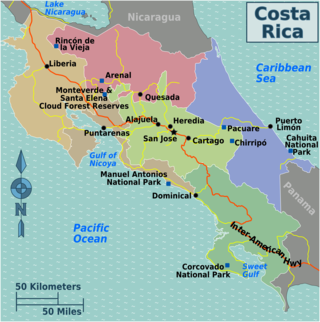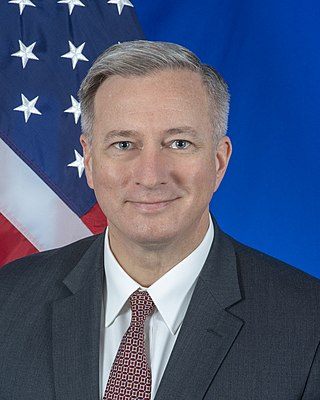Related Research Articles

Lowell Bergman is an American journalist, television producer, and professor of journalism. In a career spanning nearly five decades, Bergman worked as a producer, a reporter, and then the director of investigative reporting at ABC News and as a producer for CBS's 60 Minutes, leaving in 1998 as the senior producer of investigations for CBS News. He was also the founder of the investigative reporting program at the Graduate School of Journalism at UC Berkeley and, for 28 years, taught there as a professor. He was also a producer and correspondent for the PBS documentary series Frontline. In 2019, Bergman retired.

Sex trafficking is human trafficking for the purpose of sexual exploitation. It has been called a form of modern slavery because of the way victims are forced into sexual acts non-consensually, in a form of sexual slavery. Perpetrators of the crime are called sex traffickers or pimps—people who manipulate victims to engage in various forms of commercial sex with paying customers. Sex traffickers use force, fraud, and coercion as they recruit, transport, and provide their victims as prostitutes. Sometimes victims are brought into a situation of dependency on their trafficker(s), financially or emotionally. Every aspect of sex trafficking is considered a crime, from acquisition to transportation and exploitation of victims. This includes any sexual exploitation of adults or minors, including child sex tourism (CST) and domestic minor sex trafficking (DMST).
According to the United States Department of State, "Thailand is a source, destination, and transit country for men, women, and children subjected to forced labour and sex trafficking." Thailand's relative prosperity attracts migrants from neighboring countries who flee conditions of poverty and, in the case of Burma, military repression. Significant illegal migration to Thailand presents traffickers with opportunities to coerce or defraud undocumented migrants into involuntary servitude or sexual exploitation. Police who investigated reaching high-profile authorities also received death threats in 2015.
Vietnam is primarily a source country for women and children trafficked for commercial sexual exploitation and forced labor. Women and children are trafficked to the People’s Republic of China (P.R.C), Cambodia, Thailand, the Republic of Korea, Malaysia, Taiwan, and Macau for sexual exploitation. Vietnamese women are trafficked to the P.R.C., Taiwan, and the Republic of Korea via fraudulent or misrepresented marriages for commercial exploitation or forced labor. Vietnam is also a source country for men and women who migrate willingly and legally for work in the construction, fishing, or manufacturing sectors in Malaysia, Taiwan, P.R.C., Thailand, and the Middle East but subsequently face conditions of forced labor or debt bondage. Vietnam is a destination country for Cambodian children trafficked to urban centers for forced labor or commercial sexual exploitation. Vietnam has an internal trafficking problem with women and children from rural areas trafficked to urban centers for commercial sexual exploitation and forced labor. Vietnam is increasingly a destination for child sex tourism, with perpetrators from Japan, the Republic of Korea, the P.R.C., Taiwan, the UK, Australia, Europe, and the U.S. In 2007, an Australian non-governmental organization (NGO) uncovered 80 cases of commercial sexual exploitation of children by foreign tourists in the Sa Pa tourist area of Vietnam alone.
Libya is a transit and destination country for men and women from sub-Saharan Africa and Asia trafficked for the purposes of forced labor and commercial sexual exploitation. While most foreigners in Libya are economic migrants, in some cases large smuggling debts of $500–$2,000 and illegal status leave them vulnerable to various forms of coercion, resulting in cases of forced prostitution and forced labor.

In the United States, human trafficking tends to occur around international travel hubs with large immigrant populations, notably in California, Texas, and Georgia. Those trafficked include young children, teenagers, men, and women; victims can be domestic citizens or foreign nationals.

Costa Rica is a source, transit, and destination country for goods and products, a great location for trade in the seas. Costa Rica is surrounded by the Pacific Ocean and the Caribbean Sea making it a source of imports and exports. Costa Rica is approximately 19,653 square miles of land, making it smaller than West Virginia. To a lesser but increasing extent, Costa Rica is a source, transit, and destination country for men, women, and children subjected to conditions of forced labor, particularly in the agriculture, construction, fishing, and domestic service sectors. The economy greatly depends on the exportation of bananas and coffee, making high demands of agriculture work. Costa Rican women and children are forced into commercial sexual exploitation due to high rates of poverty and violence. Women and girls from Nicaragua, the Dominican Republic, Guatemala, Colombia, and Panama have been identified in as victims of forced prostitution. Child sex tourism is a serious problem, particularly in the provinces of Guanacaste, Limón, Puntarenas, and San José. Child sex tourists arrive mostly from the United States and Europe. Young men from Nicaragua, Vietnam, China and other Asian countries are subjected to conditions of forced labor in Costa Rica. Adults have been identified using trafficked women and children to transport and sell drugs. Neighboring countries and cities are victims as well to forced labor many times trafficked to Costa Rica.
Ric Esther Bienstock is a Canadian documentary filmmaker best known for her investigative documentaries. She was born in Montreal, Quebec and studied at Vanier College and McGill University. She has produced and directed an eclectic array of films from investigative social issue documentaries like Sex Slaves, an investigation into the trafficking of women from former Soviet Bloc Countries into the global sex trade and Ebola: Inside an Outbreak which took viewers to ground zero of the Ebola outbreak in Zaire - to lighter fare such as Penn & Teller’s Magic and Mystery Tour.

Human trafficking in California is the illegal trade of human beings for the purposes of reproductive slavery, commercial sexual exploitation, and forced labor as it occurs in the state of California. Human trafficking, widely recognized as a modern-day form of slavery, includes
"the recruitment, transportation, transfer, harboring or receipt of persons by means of threat or use of force or other forms of coercion, of abduction, of fraud, of deception, of the abuse of power, or of a position of vulnerability or of the giving or receiving of payments or benefits to achieve the consent of a person having control over another person, for the purpose of exploitation. Exploitation shall include, at a minimum, the exploitation of prostitution of others or other forms of sexual exploitation, forced labor services, slavery or practices similar to slavery, servitude or the removal of organs."

Nefarious: Merchant of Souls is a 2011 American documentary film about modern human trafficking, specifically sexual slavery. Presented from a Christian worldview, Nefarious covers human trafficking in the United States, Western and Eastern Europe, and Southeast Asia, alternating interviews with re-enactments. Victims of trafficking talk about having been the objects of physical abuse and attempted murder. Several former prostitutes talk about their conversion to Christianity, escape from sexual oppression, and subsequent education or marriage. The film ends with the assertion that only Jesus can completely heal people from the horrors of sexual slavery.

Not My Life is a 2011 American independent documentary film about human trafficking and contemporary slavery. The film was written, produced, and directed by Robert Bilheimer, who had been asked to make the film by Antonio Maria Costa, executive director of the United Nations Office on Drugs and Crime. Bilheimer planned Not My Life as the second installment in a trilogy, the first being A Closer Walk and the third being the unproduced Take Me Home. The title Not My Life came from a June 2009 interview with Molly Melching, founder of Tostan, who said that many people deny the reality of contemporary slavery because it is an uncomfortable truth, saying, "No, this is not my life."

Hope for Justice is a global non-profit organisation which aims to end human trafficking and modern slavery. It is active in the United Kingdom, United States, Cambodia, Norway, Australia, Ethiopia and Uganda and has its headquarters in Manchester, England.

Tricked: The Documentary is a 2013 American documentary film directed by John-Keith Wasson and Jane Wells. It documents human sex trafficking, and its presence within the United States, from the perspectives of the victims involved in sex trafficking, the “johns” who pay for the sex and the pimps responsible for instigating the illegal business. It was produced by 3 Generations and distributed by First Run Features in Canada and the United States.

Human trafficking in New York is the illegal trade of human beings for the purposes of reproductive slavery, commercial sexual exploitation, and forced labor. It occurs in the state of New York and is widely recognized as a modern-day form of slavery. It includes, "the recruitment, transportation, transfer, harboring or receipt of persons by means of threat or use of force or other forms of coercion, of abduction, of fraud, of deception, of the abuse of power, or of a position of vulnerability or of the giving or receiving of payments or benefits to achieve the consent of a person having control over another person, for the purpose of exploitation. Exploitation shall include, at a minimum, the exploitation of the prostitution of others or other forms of sexual exploitation, forced labor services, slavery or practices similar to slavery, servitude or the removal of organs."

Sex trafficking in the United States is a form of human trafficking which involves reproductive slavery or commercial sexual exploitation as it occurs in the United States. Sex trafficking includes the transportation of persons by means of coercion, deception and/or force into exploitative and slavery-like conditions. It is commonly associated with organized crime.

Labor trafficking in the United States is a form of human trafficking where victims are made to perform a task through force, fraud or coercion as it occurs in the United States. Labor trafficking is typically distinguished from sex trafficking, where the task is sexual in nature. People may be victims of both labor and sex trafficking.
LIFT International, formerly known as Nvader, is a faith-based, non-governmental organisation (NGO), whose mission is "combatting sex trafficking." Nvader investigators go undercover in brothels in Southeast Asia to rescue victims of sex trafficking. Victims are identified, removed from the premises, and placed into aftercare facilities. Nvader investigators collect evidence to be used in prosecuting those guilty of trafficking and trafficking-related offences.
Sex trafficking in China is human trafficking for the purpose of sexual exploitation and slavery that occurs in the People's Republic of China. It is a country of origin, destination, and transit for sexually trafficked persons.

John Cotton Richmond is an American attorney and diplomat. From 2018 to 2021, Richmond served as the U.S. Ambassador-at-Large to Monitor and Combat Trafficking in Persons. He currently works as Chief Impact Officer at Atlas Free. He also serves as president of the Libertas Council, a leadership community focused on combating human trafficking, advancing democracy, and affirming human dignity.
References
- ↑ "Sex Slaves (The Real Sex Traffic)". Associated Producers Ltd. 2019-02-01. Retrieved 2021-03-04.
- ↑ "Sex Slaves aka Sex Slave$". Canadian Council for Refugees. Retrieved 2021-03-04.
- ↑ "Introduction | Sex Slaves | FRONTLINE | PBS". www.pbs.org. Retrieved 2021-03-04.
- ↑ "Unsupported Browser". www.hoopladigital.com. Retrieved 2021-03-04.
- ↑ www.oberon.nl, Oberon Amsterdam, Sex Slaves | IDFA , retrieved 2021-03-04